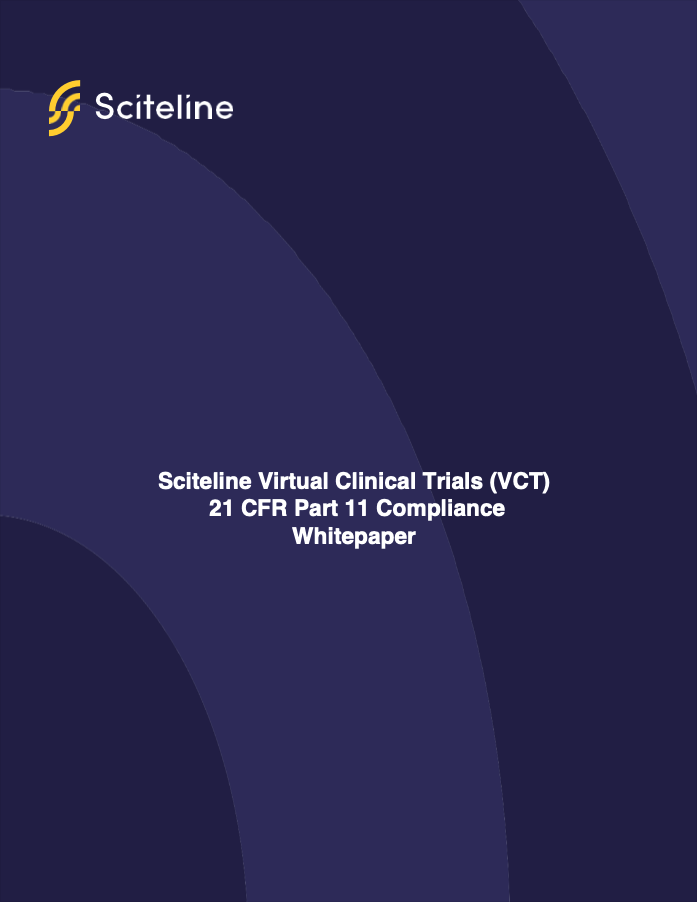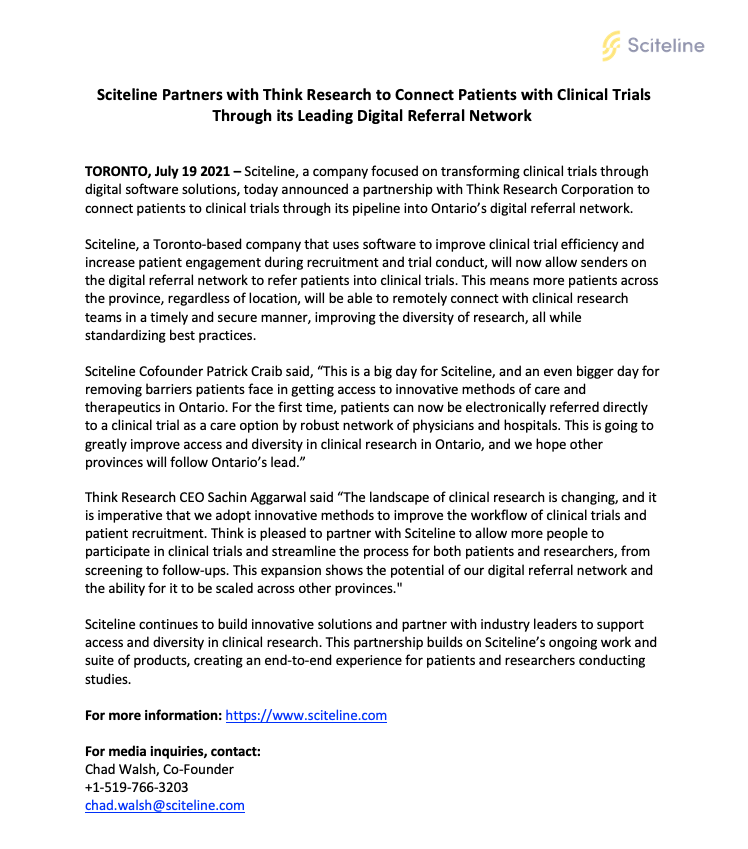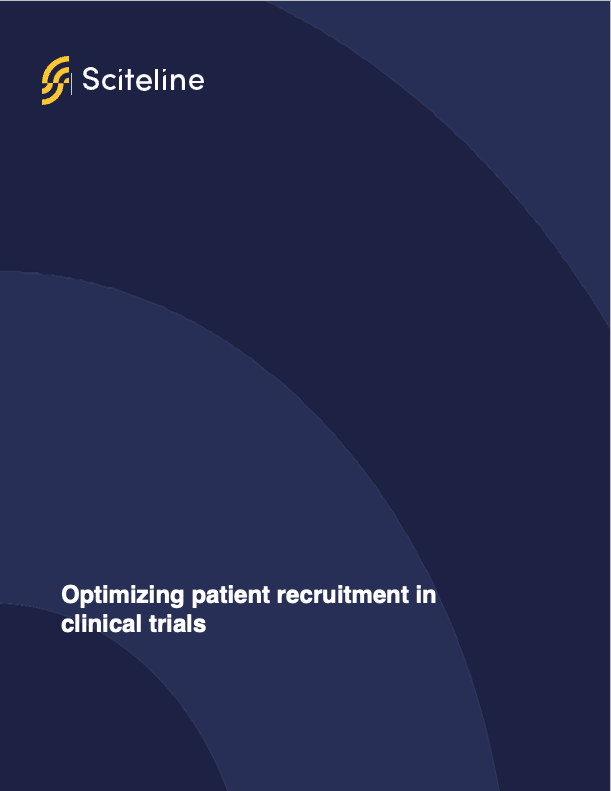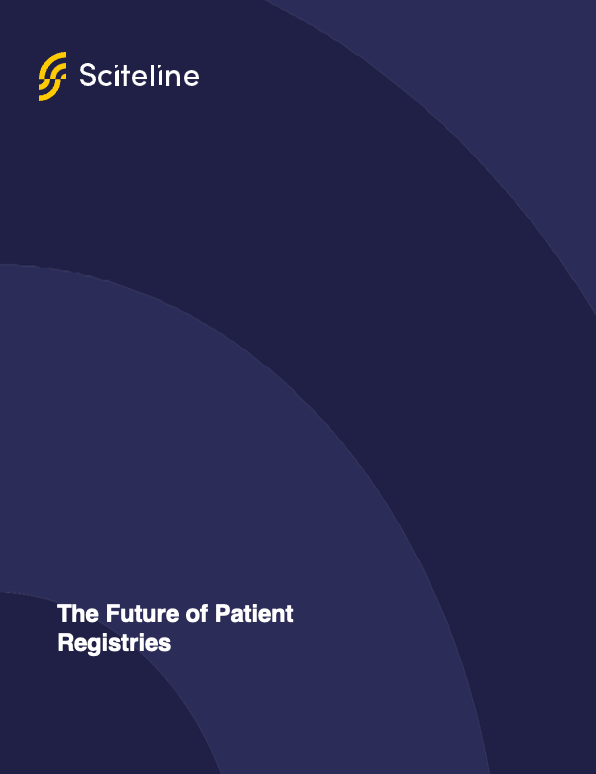Research organizations are increasingly benefitting from the advantages of decentralized solutions. These companies must adhere to the regulatory requirements of United States (U.S.) Federal Regulation Title 21, Chapter 1, Part 11 (21 CFR Part 11) if using electronic records and electronic signatures in place of paper-based records to comply with FDA rules.
Many organizations are choosing Sciteline’s Virtual Clinical Trial (VCT) product to digitize patient informed consent, patient reported outcomes and clinical assessment outcome processes. 21 CFR Part 11 requirements can be satisfied using VCT when it’s properly configured to execute electronic signatures.
This paper presents an assessment of the technical features and the procedural controls that allow for the application of 21 CFR Part 11 compliant signatures using Sciteline’s VCT product. The assessment focuses on how Sciteline’s Virtual Clinical Trial (VCT) product and the research organization using VCT share responsibilities for achieving compliance.






